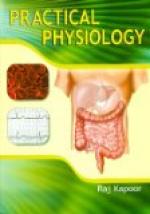Being one of the essential elements of the body, it is highly important that water should be free from harmful impurities. If it contain the germs of disease, sickness may follow its use. Without doubt the most important factor in the spread of disease is, with the exception of impure air, impure water. The chief agent in the spread of typhoid fever is impure water. So with cholera, the evidence is overwhelming that filthy water is an all-powerful agent in the spread of this terrible disease.
120. Tea, Coffee, and Cocoa. The active principle of tea is called theine; that of coffee, caffeine, and of cocoa, theobromine. They also contain an aromatic, volatile oil, to which they owe their distinctive flavor. Tea and coffee also contain an astringent called tannin, which gives the peculiar bitter taste to the infusions when steeped too long. In cocoa, the fat known as cocoa butter amounts to fifty per cent.
121. Tea. It has been estimated that one-half of the human race now use tea, either habitually or occasionally. Its use is a prolific source of indigestion, palpitation of the heart, persistent wakefulness, and of other disorders. When used at all it should be only in moderation. Persons who cannot use it without feeling its hurtful effects, should leave it alone. It should not be taken on an empty stomach, nor sipped after every mouthful of food.
122. Coffee. Coffee often disturbs the rhythm of the heart and causes palpitation. Taken at night, coffee often causes wakefulness. This effect is so well known that it is often employed to prevent sleep. Immoderate use of strong coffee may produce other toxic effects, such as muscular tremors, nervous anxiety, sick-headache, palpitation, and various uncomfortable feelings in the cardiac region. Some persons cannot drink even a small amount of tea or coffee without these unpleasant effects. These favorite beverages are unsuitable for young people.
123. Cocoa. The beverage known as cocoa comes from the seeds of the cocoa-tree, which are roasted like the coffee berries to develop the aroma. Chocolate is manufactured cocoa,—sugar and flavors being added to the prepared seeds. Chocolate is a convenient and palatable form of highly nutritious food. For those with whom tea and coffee disagree, it may be an agreeable beverage. The large quantity of fat which it contains, however, often causes it to be somewhat indigestible.
124. Alcoholic Beverages. There is a class of liquids which are certainly not properly food or drink, but being so commonly used as beverages, they seem to require special notice in this chapter. In view of the great variety of alcoholic beverages, the prevalence of their use, and the very remarkable deleterious effects they produce upon the bodily organism, they imperatively demand our most careful attention, both from a physiological and an hygienic point of view.
125. Nature of Alcohol. The ceaseless action of minute forms of plant life, in bringing about the decomposition of the elaborated products of organized plant or animal structures, will be described in more detail (secs. 394-398).




